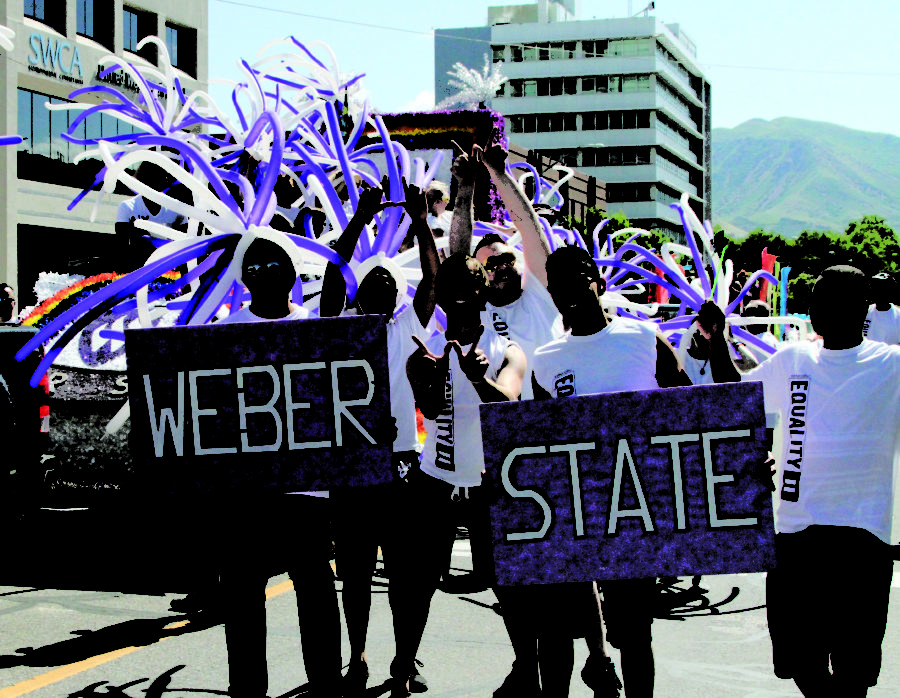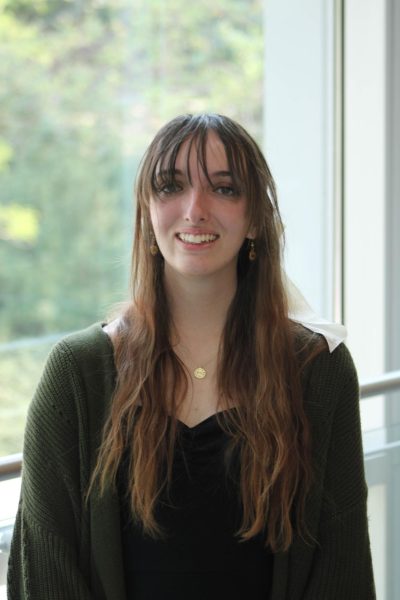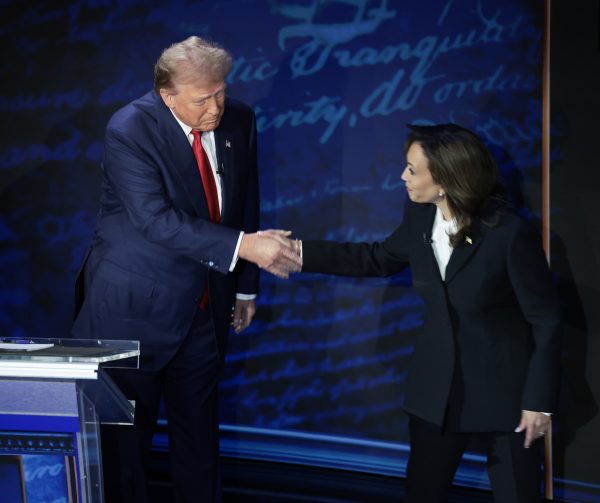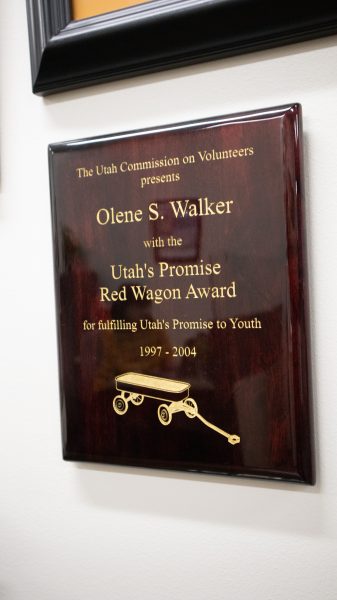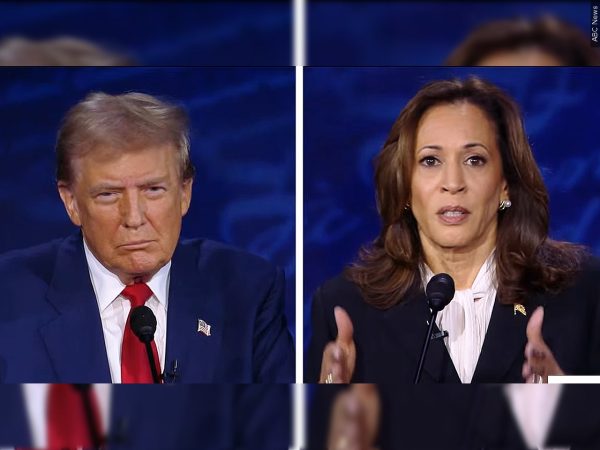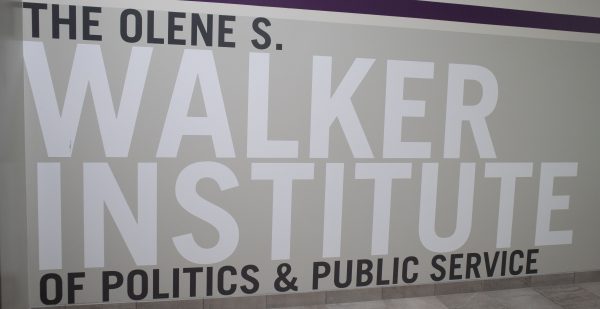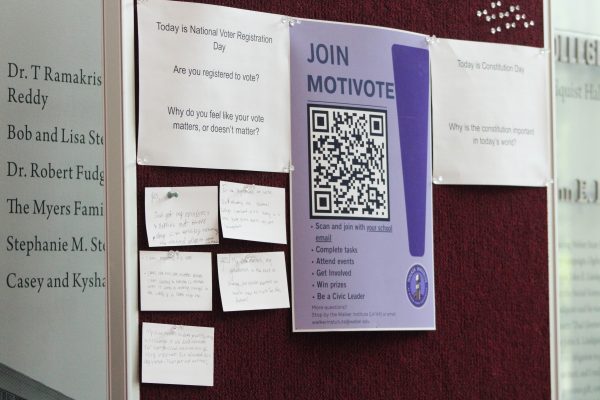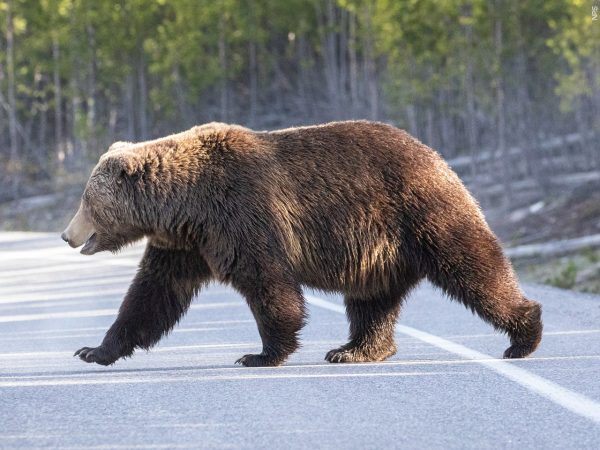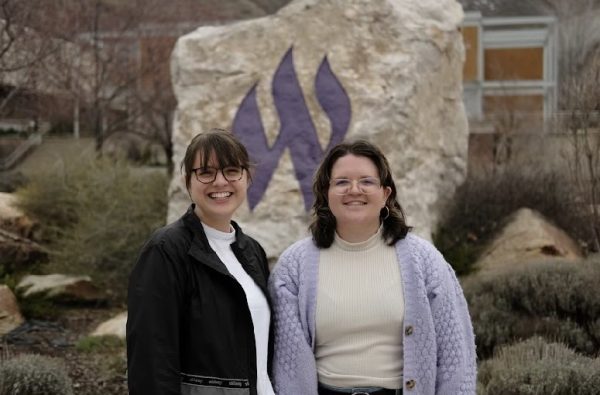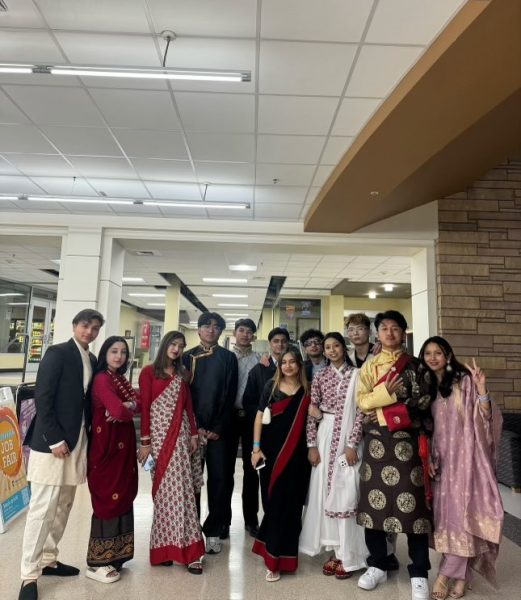Ogden Pride history hunt
As another Pride Month is celebrated this June, the search for LGBTQ history in Ogden still continues.
Much of the history is still unknown as artifacts are missing from the archives. Sarah Langsdon, head of Special Collections, is hoping to fix that.
Two years ago, Langsdon noticed there were many gaps in the collections with LGBTQ representation. She wanted people to be able to look into the history of the area and see themselves reflected in it. This prompted her to start the project Queering the Archives.
The project was centered around collecting oral histories from Ogden’s LGBTQ community. Photos, diaries and letters were also collected. Anything the interviewees wanted to share to prevent them being lost to history was accepted, Langsdon said.
Langsdon was able to hire student workers and interns with grant money she received for the project. Together, they collected 45 interviews from people as young as 18 and as old as 86.
“They talked about the good, the bad and the horrific things that they’ve experienced,” Langsdon said.
Many of the people interviewed were eager to share their stories because they said no one had ever asked before.
The project did eventually run out of funding for the student workers, but Langsdon is still working on getting the history into the archives. Anyone willing to share their story is still welcome to talk to them. In the spring, Langsdon will be teaching an oral history class where she’ll train students how to conduct these interviews.
On top of this, Langsdon is currently trying to find info about the LGBTQ clubs that once were sprinkled around Ogden. These clubs existed in the 1980s to the early 2000s but there has not been one in Ogden since.
Langsdon said she has contacts with some drag performers who used to work at one club, The Brass Rail, and is hoping to conduct more oral histories to learn more about these clubs.
Langsdon said that with the lack of an LGBTQ resource program coordinator, Queering the Archives became the de facto queer group on campus. She would often get questions about how to change to a preferred name in Canvas, the answers to which she only knew because she had gone through the process with her son.
“I’m excited to finally get somebody in there, somebody that can start doing programming and trainings and provide that space that is needed,” she said.
The LGBT Resource Center has been lacking a resource program coordinator since the spring of 2022.
“With the Division of Student Affairs changing and the creation of the Equity, Diversity and Inclusion division of the university, we just waited a little while to get some of those ducks in a row before posting the position,” Katelyn Blanch, administration specialist for both the Women’s Center and the LGBT Resource Center, said.
The new program coordinator is expected to be hired before next fall, where they will be in charge of creating programming for the LGBT Resource Center, as well as educating students, faculty and staff through workshops and presentations.
In preparation for this, they have launched a new Instagram account, @WeberStateLGBTResourceCenter, to spread awareness of their programs and events.
Even though past LGBTQ history is difficult to find, Weber State University alum Kate Kendell’s story is a reminder that history is currently being made.
Kendell’s successful career as a Civil Rights advocate includes being the first ACLU staff attorney in Utah, leading the National Center for Lesbian Rights and being one of the attorneys to help get the Marriage Equality Act to the United States Supreme Court.
“It was one of the most exhilarating moments, probably the zenith of my legal career,” Kendell said of the latter experience.
It was important to Kendell not only because there was now the right to marriage, but also because of the huge culture shift it created for the community. She felt that the Supreme Court’s decision would make queer youth think their future would be better because of it.
Kendell’s love for Civil Rights advocacy started locally in a civics class at North Ogden Junior High. Having grown up a member of the Church of Jesus Christ of Latter-day Saints, Kendell felt she was not exposed to many different perspectives. This class introduced her to the history and stories of people like Sojourner Truth, Frederick Douglass and Cesar Chavez.
“It made me recognize, first of all, how much injustice there had been in the world and certainly in the early founding of our nation, and it just lit a little bit of a fire under me,” Kendell said.
At WSU, Kendell was able to give a voice to this passion by joining the debate team and being the news editor for The Signpost. During her time at WSU, Kendell came out as lesbian to herself and her friends.
“It was a pretty lonely and isolating time,” Kendell said. “And yet, even though it felt very isolating, the world did start to open up after I came out, and I started to get to know many more people in the community in Ogden. Many more people than you think, even back then.”
Though no longer living in Utah, Kendell still returns often to visit, including when she attended the groundbreaking of the LGBT Resource Center.
Kendell said it meant a lot not only to see the center, but to see university officials, alumni and students there to welcome it.
“I’ve had multiple times where I’ve been very proud to be an alum of Weber State,” Kendell said. “But that day was definitely the pinnacle of that pride.”
Kendell considers attending Weber to be influential to her success because of the way she felt seen on campus. She felt like she was taken seriously, regardless of her sexual orientation.
“That’s not an insubstantial gift to give somebody,” she said.


